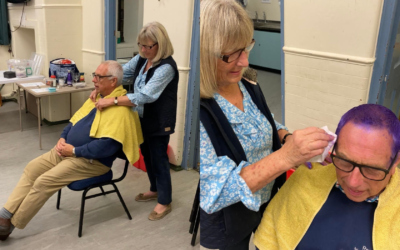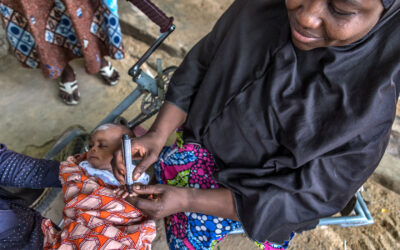We are well into this Rotary year and what a year it has been for the Rotary Representatives to the United Nations and other international organisations!
As Rotary’s “ambassadors” to 22 UN and key agencies, our work normally is to meet strategic personnel and develop relationships that are conducive to working together on Rotary’s areas of focus.
This is not an easy task in the midst of a pandemic.
Like all Rotarians, we have had to adapt to doing things differently through virtual meetings – it’s diplomacy via the internet!
As Rotary’s “ambassadors” to 22 UN and key agencies, our work normally is to meet strategic personnel and develop relationships that are conducive to working together on Rotary’s areas of focus.”
Retired Swiss Ambassador Walter Gyger, now Rotary’s Representative to the United Nations in Geneva, spent the last year planning the Peace Project Incubator which had to be repurposed to a virtual meeting in November.
This meeting was in association with the Rotary Action Group for Peace, in keeping with the network’s new action plan – to better connect the representatives with various Rotary entities.
Walter also involved Rotary Peace Fellows, inviting them to introduce more than 50 ready-to-go peace projects seeking support, resources, and engagement from Rotary clubs.
Visit the event website for information on these signature projects that need partners!
I know how hard our representatives in Brussels – Michel Coomans and Hugo Schally – worked on putting together a virtual conference on Global Health Security co-hosted by President Holger Knaack and Marlene Mortler, a member of the European Parliament, also in November.
The primary aim of the meeting was advocacy for funding for the polio program.
One of the benefits of meeting virtually was that we had over 450 participants from around the world and were able to include experts from Rwanda and the Netherlands in the discussions.
I was very pleased to see the discussion at the World Health Assembly in November recognise the importance of Rotary’s role in the Global Polio Eradication Initiative
One of the benefits of meeting virtually was that we had over 450 participants from around the world and were able to include experts from Rwanda and the Netherlands in the discussions.”
The assembly also allowed member states to reaffirm their commitment to polio eradication as well as recognise the outstanding contribution since last March of polio resources and staff responding to COVID-19.
Likewise, at the WHO Executive Board virtual meeting in January, global health leaders and ministers of health urged for concerted and emergency efforts to finally rid the world of polio, noting a global and collective responsibility to finish the disease once and for all.
Delegates also reiterated their support for the sustainable transitioning of polio assets, recognising that successful polio transition and polio eradication are twin goals.
Speaking on behalf of Rotary – the civil society arm of the GPEI partnership – I thanked global health leaders for their continued dedication to polio eradication and public health, sentiments echoed by several other partners, including the United Nations Foundation.
Likewise, at the WHO Executive Board virtual meeting in January, global health leaders and ministers of health urged for concerted and emergency efforts to finally rid the world of polio, noting a global and collective responsibility to finish the disease once and for all.”
I have been working for the last year on advocacy for the Commonwealth Heads of Government meeting which was postponed to June 2021 because of COVID-19.
It was good to see the event themes now include health in light of the pandemic.
I have also been working with other Commonwealth NGOs on a submission on health prior to the meeting of Commonwealth High Commissioners.
In Nairobi, former Kenyan Ambassador Josephine Ojiambo has been working overtime responding to COVID-19 by connecting UNICEF Kenya and Rotary District 9212.
They have signed an important two-year agreement focusing on COVID-19 and WASH in schools and launched a big fundraising campaign.
In Nairobi, former Kenyan Ambassador Josephine Ojiambo has been working overtime responding to COVID-19 by connecting UNICEF Kenya and Rotary District 9212.”
Also in Nairobi, Rotary’s Representative to UNESCO Salome Gitoho attended a webinar on “Recover and Revitalize Education” for the COVID-19 generation.
Organised by UNESCO, UN Headquarters, the Global Partnership for Education (GPE), and the Centre for Interdisciplinary Studies, UN Secretary-General António Guterres noted education is a fundamental human right and a public good and must be protected to avert a generational catastrophe.
Guterres said: “In 2021, we must step up our efforts to reimagine education, train teachers, and bridge the digital divide.”
All 30 Rotary Representatives are doing just that – reimagining, particularly in light of this ongoing pandemic – how Rotary opens opportunities and connects to international agencies for inspiration, knowledge sharing, and potential joint humanitarian service projects.
For more information, explore the history of Rotary’s relationship with the United Nations or read our Rotary Representative Newsletter.










